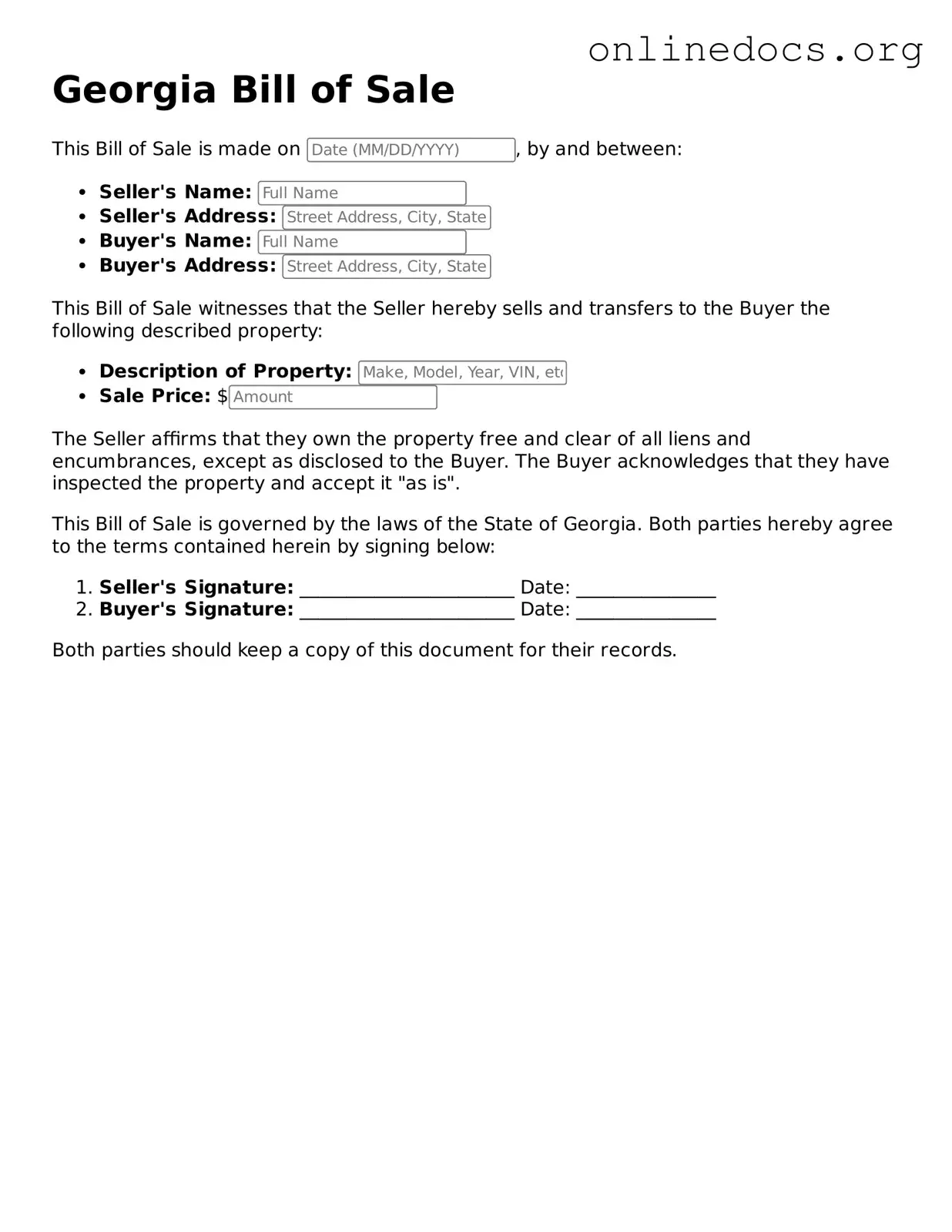The Georgia Bill of Sale is similar to a Vehicle Title Transfer. Both documents serve to legally transfer ownership of a vehicle from one party to another. The Vehicle Title Transfer includes essential information such as the vehicle identification number (VIN), make, model, and year of the vehicle, as well as the names and signatures of the buyer and seller. While the Bill of Sale is often used as proof of purchase, the Vehicle Title Transfer is the official document needed to register the vehicle in the new owner's name.
Another document akin to the Georgia Bill of Sale is the Personal Property Bill of Sale. This document is used for the sale of personal items, such as furniture or electronics. It outlines the item being sold, its condition, and the sale price. Like the Bill of Sale, it protects both the buyer and seller by providing a written record of the transaction. Both documents serve as proof of ownership and can be crucial in resolving disputes regarding the sale.
In addition to these important documents, it's essential to consider the legal aspects of property transactions, which can be effectively documented through various forms, including a General Bill of Sale form. This form helps ensure that all parties have a clear understanding of their rights and obligations, further protecting them throughout the transaction process.
The Lease Agreement also shares similarities with the Georgia Bill of Sale. While a Bill of Sale transfers ownership, a Lease Agreement establishes a temporary arrangement for the use of property, such as real estate or equipment. Both documents require the names of the parties involved, a description of the property, and the terms of the transaction. They both serve to protect the rights of the parties and provide clear guidelines for the transaction.
A Purchase Agreement is another document comparable to the Georgia Bill of Sale. This agreement details the terms of a sale, including the price, payment method, and delivery conditions. While the Bill of Sale acts as a receipt for the transaction, the Purchase Agreement outlines the responsibilities of both the buyer and seller before the transfer occurs. Both documents aim to ensure transparency and mutual understanding between the parties involved.
The Promissory Note is also related to the Georgia Bill of Sale, particularly when the purchase involves financing. A Promissory Note is a written promise to pay a specified amount of money, often used when the buyer cannot pay the full price upfront. While the Bill of Sale confirms the transfer of ownership, the Promissory Note establishes the buyer's obligation to pay the agreed amount over time. Both documents work together to facilitate a smooth transaction.
Similar to the Georgia Bill of Sale is the Warranty Deed. This document is used in real estate transactions to transfer property ownership. A Warranty Deed guarantees that the seller has clear title to the property and the right to sell it. While the Bill of Sale is often used for personal property, the Warranty Deed serves a similar purpose in real estate, ensuring that the buyer receives ownership without any claims against it.
The Affidavit of Title is another document that parallels the Georgia Bill of Sale. This legal document is used to affirm the ownership of a vehicle or property and that it is free of liens. When selling a vehicle, the seller may provide an Affidavit of Title along with the Bill of Sale to assure the buyer of their ownership rights. Both documents work together to create a secure and transparent transaction.
Lastly, the Quitclaim Deed is comparable to the Georgia Bill of Sale, particularly in the context of transferring real estate. A Quitclaim Deed transfers any ownership interest the seller may have in a property, without guaranteeing that the title is clear. While the Bill of Sale provides a clear record of a sale, the Quitclaim Deed serves as a means to convey any existing interest in a property, emphasizing the need for due diligence by the buyer.
